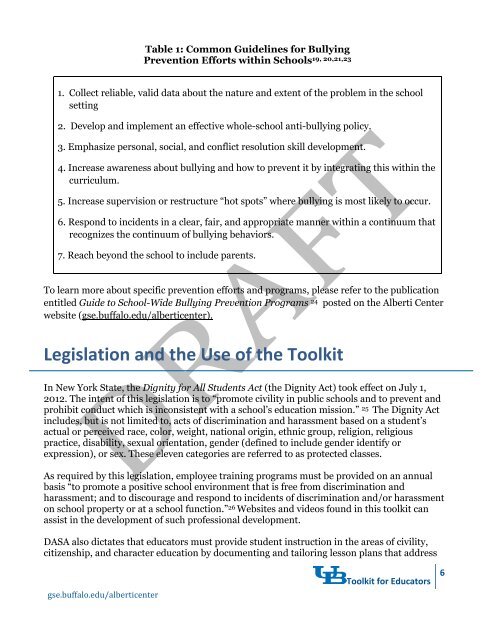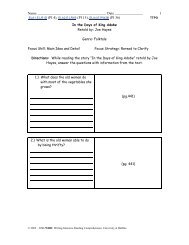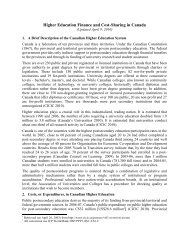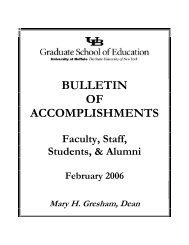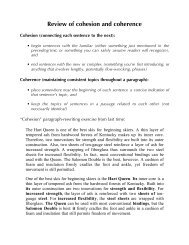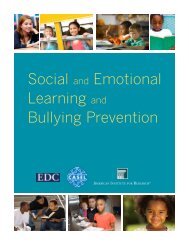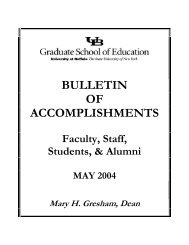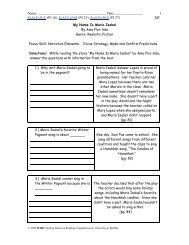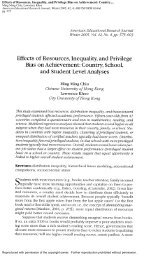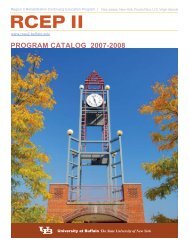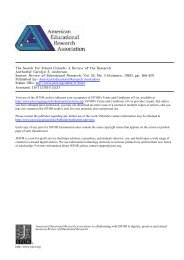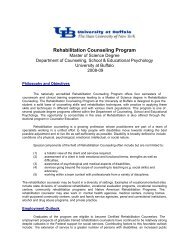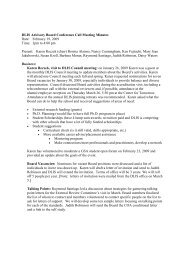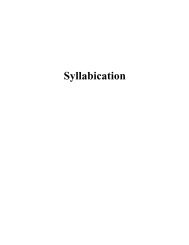Alberti Center for Bullying Abuse Prevention - UB Graduate School ...
Alberti Center for Bullying Abuse Prevention - UB Graduate School ...
Alberti Center for Bullying Abuse Prevention - UB Graduate School ...
Create successful ePaper yourself
Turn your PDF publications into a flip-book with our unique Google optimized e-Paper software.
Table 1: Common Guidelines <strong>for</strong> <strong>Bullying</strong><br />
<strong>Prevention</strong> Ef<strong>for</strong>ts within <strong>School</strong>s19, 20,21,23<br />
1. Collect reliable, valid data about the nature and extent of the problem in the school<br />
setting<br />
2. Develop and implement an effective whole-school anti-bullying policy.<br />
3. Emphasize personal, social, and conflict resolution skill development.<br />
4. Increase awareness about bullying and how to prevent it by integrating this within the<br />
curriculum.<br />
5. Increase supervision or restructure “hot spots” where bullying is most likely to occur.<br />
6. Respond to incidents in a clear, fair, and appropriate manner within a continuum that<br />
recognizes the continuum of bullying behaviors.<br />
7. Reach beyond the school to include parents.<br />
To learn more about specific prevention ef<strong>for</strong>ts and programs, please refer to the publication<br />
entitled Guide to <strong>School</strong>-Wide <strong>Bullying</strong> <strong>Prevention</strong> Programs 24 posted on the <strong>Alberti</strong> <strong>Center</strong><br />
website (gse.buffalo.edu/alberticenter).<br />
Legislation and the Use of the Toolkit <br />
In New York State, the Dignity <strong>for</strong> All Students Act (the Dignity Act) took effect on July 1,<br />
2012. The intent of this legislation is to “promote civility in public schools and to prevent and<br />
prohibit conduct which is inconsistent with a school’s education mission.” 25 The Dignity Act<br />
includes, but is not limited to, acts of discrimination and harassment based on a student’s<br />
actual or perceived race, color, weight, national origin, ethnic group, religion, religious<br />
practice, disability, sexual orientation, gender (defined to include gender identify or<br />
expression), or sex. These eleven categories are referred to as protected classes.<br />
As required by this legislation, employee training programs must be provided on an annual<br />
basis “to promote a positive school environment that is free from discrimination and<br />
harassment; and to discourage and respond to incidents of discrimination and/or harassment<br />
on school property or at a school function.” 26 Websites and videos found in this toolkit can<br />
assist in the development of such professional development.<br />
DASA also dictates that educators must provide student instruction in the areas of civility,<br />
citizenship, and character education by documenting and tailoring lesson plans that address<br />
gse.buffalo.edu/alberticenter <br />
Toolkit <strong>for</strong> Educators <br />
6


